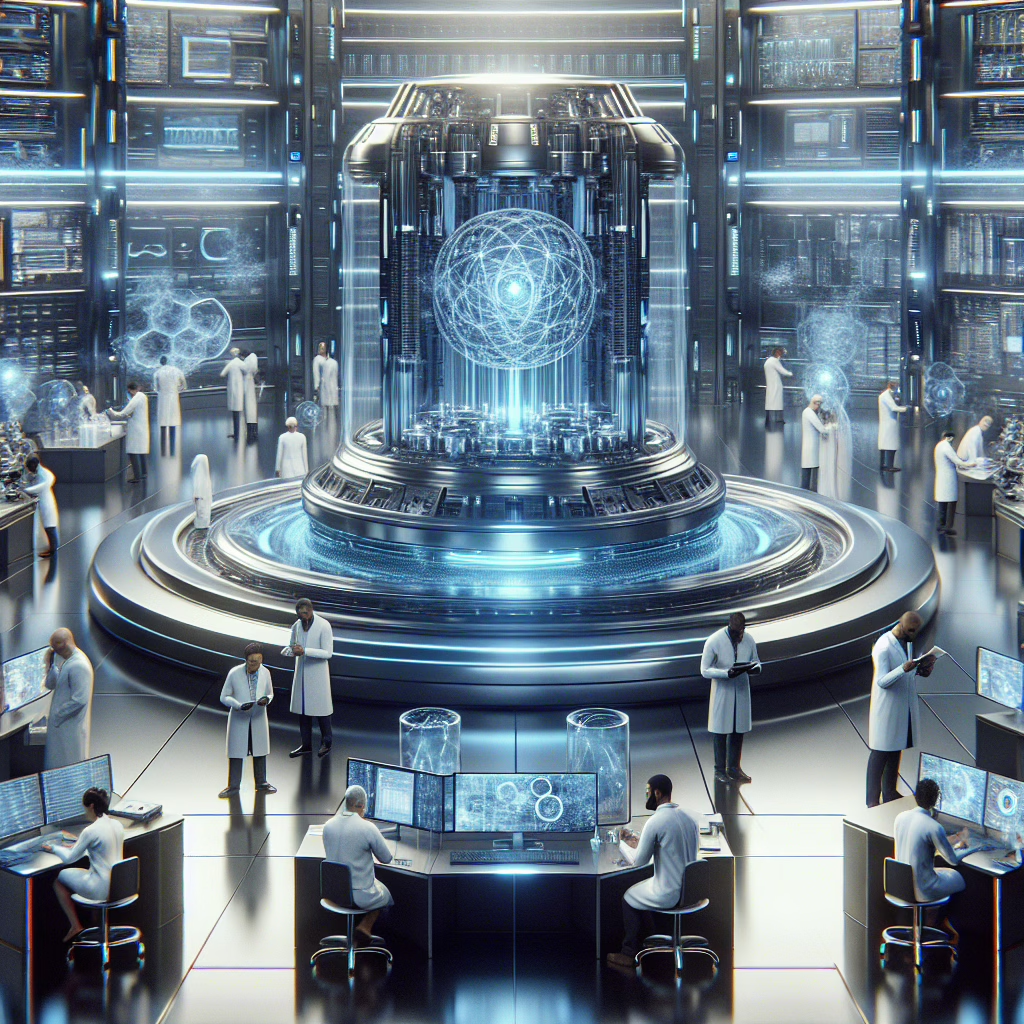Welcome to the future, folks! If you thought flying cars and robot butlers were the pinnacle of technological advancement, think again. In 2025, Germany’s Jupiter supercomputer has taken a giant leap into the realm of high-performance computing, making waves as the world’s fourth fastest supercomputer. This marvel of modern technology showcases unmatched power and speed, leaving us mere mortals wondering how we ever managed without it.
The Rise of the Jupiter Supercomputer
So what makes this supercomputer so special? Let’s break it down without getting too lost in technical jargon. The Jupiter supercomputer, located in Jülich, Germany, is not just any ordinary piece of machinery; it’s a colossal brain capable of performing quintillions of calculations per second. Yes, you read that right—quintillions! That’s a number so large it could make your head spin faster than the processors inside.
With its incredible computing capabilities, Jupiter is designed to tackle some of the toughest challenges facing humanity today. From climate modeling to advanced drug discovery, this powerhouse is set to revolutionize various fields. Imagine solving complex problems faster than you can brew your morning coffee!
How Does It Stack Up?
Now, let’s talk numbers—because what’s a tech article without some impressive stats? The Jupiter supercomputer boasts a performance that catapults it into the top tier of global computing giants. It clocks in with a staggering performance exceeding 1 exaflop (that’s 1018 floating-point operations per second). For comparison, that’s like having a million calculators working together in perfect harmony—each doing math at lightning speed!
Jupiter’s architecture is built on cutting-edge technology that allows for seamless parallel processing. This means it can handle multiple tasks simultaneously without breaking a sweat (or overheating like your laptop might during a Netflix binge). The combination of powerful CPUs and GPUs ensures that it can tackle both traditional computational tasks and AI-driven workloads with ease.
Why Should We Care?
Now you might be wondering: “That sounds impressive, but why should I care?” Well, dear reader, the implications of such advancements are enormous! With its unmatched power and speed, the Jupiter supercomputer opens up new frontiers in research and innovation.
- Climate Modeling: Scientists can model complex climate systems with unprecedented accuracy, leading to better predictions about natural disasters.
- Healthcare Innovations: Researchers in medicine can accelerate drug discovery processes, simulating atomic interactions in mere hours.
- Resource Management: Efficient processing capabilities can help in managing global resources more effectively, aiding sustainability efforts.
Imagine being able to predict weather patterns weeks in advance—no more surprise snowstorms ruining your plans!
The Global Impact
The launch of the Jupiter supercomputer also represents Germany’s commitment to remaining at the forefront of scientific research and technology development. In an age where global competition for technological supremacy is fierce, such advancements ensure that countries like Germany continue to lead the charge.
As we venture further into 2025 and beyond, supercomputers like Jupiter will play an increasingly vital role in addressing global challenges—from healthcare crises to environmental sustainability. Who knew that a massive collection of circuits and wires could become such an essential ally in our fight against some of humanity’s biggest hurdles?
In Conclusion
The future looks bright (and fast!) with innovations like Germany’s Jupiter supercomputer paving the way for monumental changes across various sectors. So next time you hear about an exaflop or see a headline about high-performance computing, remember that behind those numbers lies potential—potential that could transform our world in ways we can only begin to imagine.
If you’re as excited as I am about these advancements or have thoughts on where supercomputing might take us next, feel free to share your insights below!
A big thank you to Rude Baguette for providing the original material on this fascinating topic!

